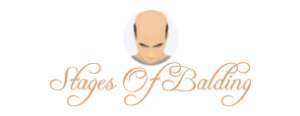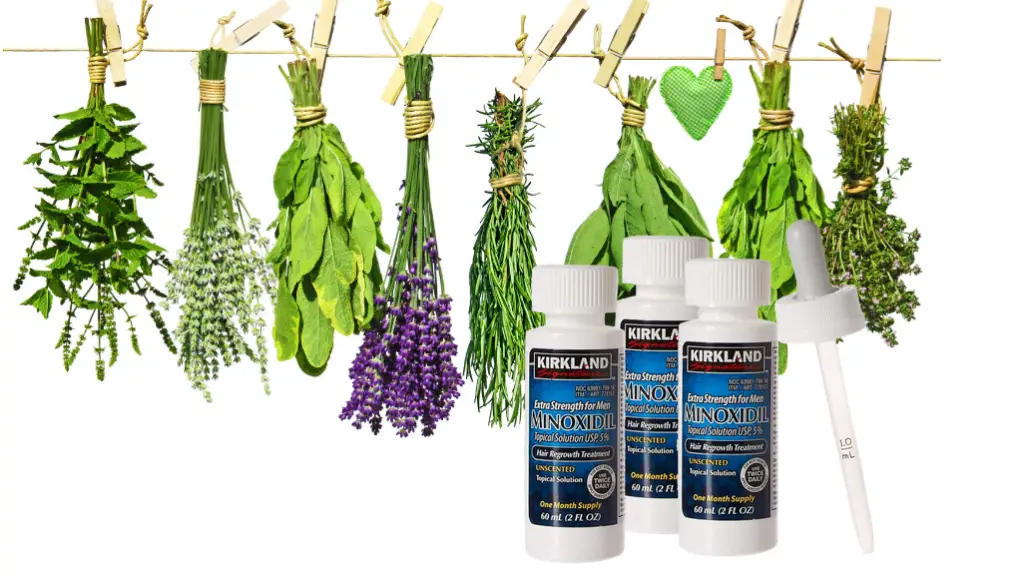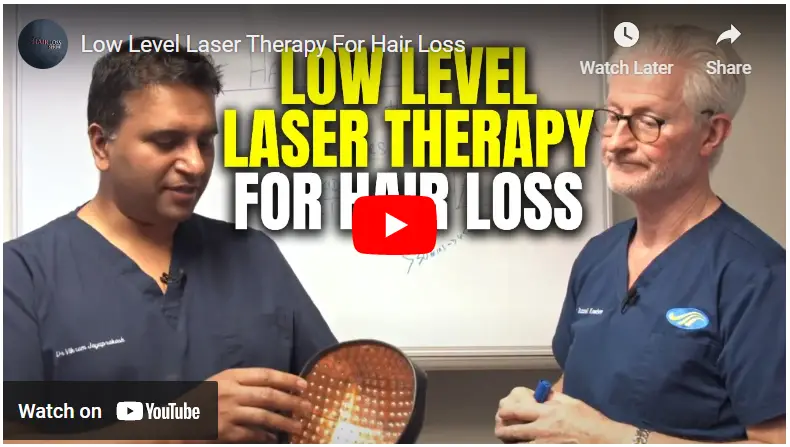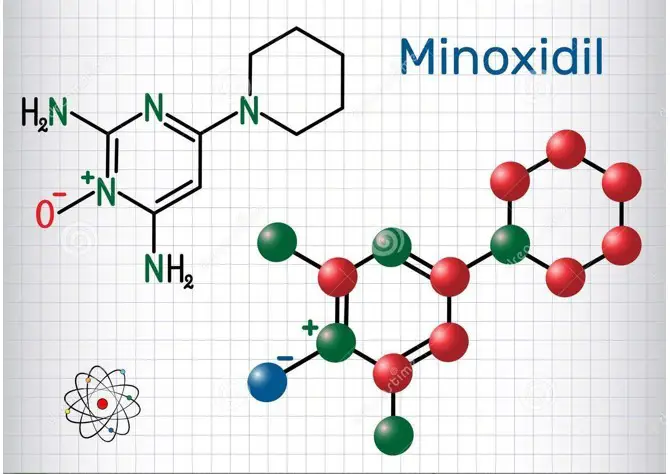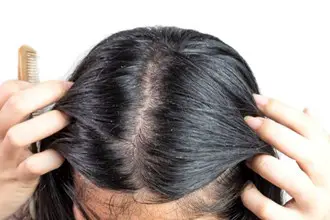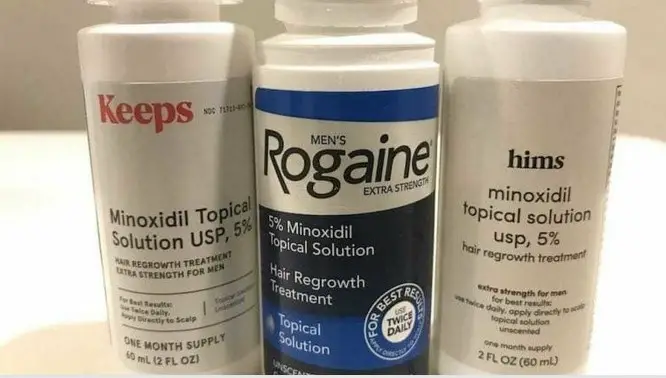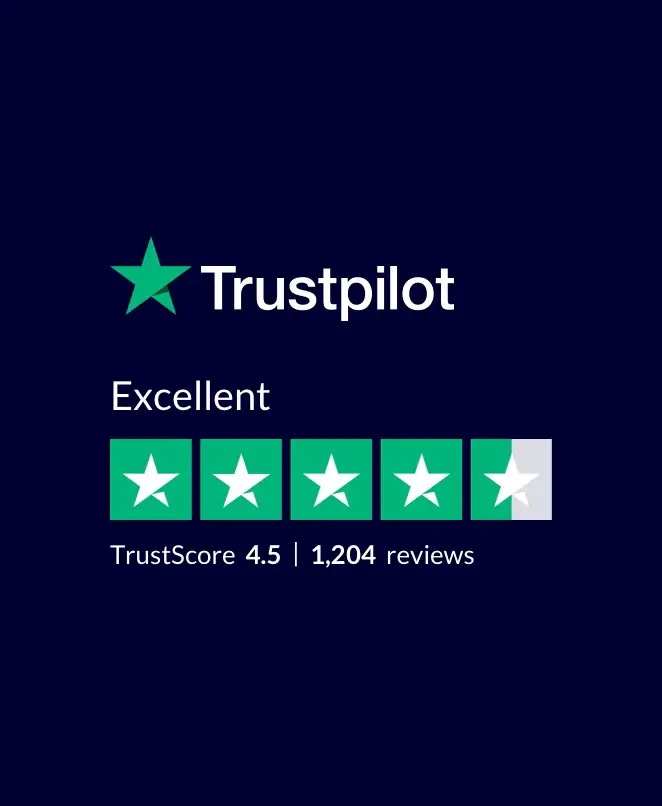Hair loss is a common concern for many individuals, and one of the most popular treatments is a product known as minoxidil. Originally developed as a medication for high blood pressure, minoxidil was found to have an interesting side effect – it could stimulate hair growth. Today, it’s widely used in products like Rogaine to help combat hair loss. However, not everyone finds success with minoxidil, and some people experience side effects, leading them to seek alternatives to minoxidil.
In this comprehensive guide, we’ll explore both medical and natural alternatives to minoxidil, providing you with a range of options to consider if you’re looking for a different approach to hair regrowth. We’ll delve into the pros and cons of each alternative, their effectiveness, and how they compare to minoxidil.
Whether you’re interested in exploring ayurvedic substitutes for minoxidil, curious about what you might find on minoxidil alternatives reddit, or wondering if there’s anything better than minoxidil, we’ve got you covered.
Before we dive in, it’s important to remember that everyone’s body responds differently to treatments. What works for one person might not work for another. Always consult with a healthcare provider before making changes to your hair loss treatment regimen.
Related Articles:
- Keeps vs. Rogaine: Which is Better for Hair Loss? – Explore the differences between these two popular hair loss treatments and find out which one might be the best fit for you.
- Dealing with Minoxidil Itchy Scalp: Tips and Solutions – Learn how to manage the common side effect of an itchy scalp from minoxidil use.
- What to Do When Minoxidil Stops Working – Find out the steps to take if you notice that minoxidil isn’t as effective as it used to be.
Key Takeaways
In this comprehensive guide, we’ve explored minoxidil alternatives for hair loss. Here are the key points to remember:
- Minoxidil is a proven hair loss treatment, but it’s not the only option. There are medical alternatives like oral minoxidil and finasteride, as well as natural remedies like essential oils and scalp massage.
- Each treatment has its pros and cons, and what works best for one person might not work best for another. It’s important to consult with a healthcare provider before starting any new treatment.
- Hair regrowth is a marathon, not a sprint. Be patient, persistent, and remember that you’re not alone.
Now, let’s get started on your journey to discovering the best minoxidil alternatives for hair loss.
Understanding Minoxidil and Its Effects
Minoxidil is a vasodilator, which means it widens the blood vessels. When applied topically to the scalp, it can help increase blood flow to hair follicles, potentially stimulating hair growth and slowing hair loss. It’s a key ingredient in many hair regrowth products, including the well-known brand Rogaine.
However, minoxidil isn’t a magic bullet for hair loss. It doesn’t work for everyone, and it’s not a cure for baldness. In fact, once you stop using minoxidil, any new hair growth typically falls out within several months.
Moreover, minoxidil can cause side effects. Some people experience scalp irritation, dryness, scaling, or flaking. Others may notice a change in hair color or texture. In rare cases, minoxidil can cause more serious side effects, like chest pain, rapid heartbeat, faintness, or sudden unexplained weight gain.
These potential side effects, combined with the fact that minoxidil isn’t a permanent solution to hair loss, lead many people to seek alternatives to minoxidil.
If you’re one of those people, you’re in the right place. In this guide, we’re exploring a variety of alternatives, from medical treatments to natural remedies. We’ll discuss how they work, their pros and cons, and how they compare to minoxidil.
Whether you’re interested in oral minoxidil, curious about cheaper alternatives to Rogaine, or wondering about natural substitutes for minoxidil, we’ve got you covered.
Remember, it’s important to consult with a healthcare provider before making changes to your hair loss treatment regimen. They can provide personalized advice based on your specific situation and needs.
Related Articles:
- Minoxidil Foam vs. Liquid: Which is More Effective? – Compare the pros and cons of minoxidil in foam and liquid forms.
- Using Minoxidil After Dermarolling: A Guide – Discover how to safely use minoxidil after dermarolling for enhanced hair growth.
- Minoxidil for Receding Hairline: Does it Work? – Understand how minoxidil can help with a receding hairline.
Stay tuned! In the next section, we’ll delve into medical alternatives to minoxidil.
Medical Alternatives to Minoxidil
If you’re seeking a more clinical approach to hair loss, several medical alternatives to minoxidil exist. These options range from oral medications to topical treatments, each with their own benefits and potential side effects. Let’s delve into some of the most common ones.
1. Oral Minoxidil Tablets
Oral minoxidil was originally used to treat high blood pressure, but doctors noticed that patients taking the medication often experienced hair growth as a side effect. Today, oral minoxidil is sometimes prescribed off-label for hair loss. It can stimulate hair growth, but it also carries a risk of side effects, including fluid retention, heart palpitations, and excessive hair growth in unwanted areas.
2. Finasteride
Finasteride is a prescription medication that’s taken orally. It works by blocking the conversion of testosterone into dihydrotestosterone (DHT), a hormone that can shrink hair follicles and lead to hair loss. Finasteride can slow hair loss and even lead to regrowth in some cases, but it’s not suitable for everyone. It’s typically prescribed for men, as it can cause birth defects if taken by pregnant women.
3. Spironolactone
Spironolactone is another medication that’s sometimes used off-label for hair loss. It’s a diuretic, which means it helps your body get rid of excess fluid. But it also blocks the effects of certain hormones, including DHT, which can contribute to hair loss. Spironolactone can cause side effects like dizziness, nausea, and changes in menstrual periods.
4. Corticosteroids
Corticosteroids are powerful anti-inflammatory drugs that can suppress the immune system. They’re often used to treat autoimmune conditions, including some forms of hair loss. Corticosteroids can be taken orally, applied topically, or injected directly into the scalp. They can slow hair loss and stimulate regrowth, but they also carry a risk of side effects, especially with long-term use.
5. Antifungals
Some antifungal medications can also help with hair loss. For example, ketoconazole, an ingredient in some prescription and over-the-counter dandruff shampoos, has been shown to have a mild effect on hair growth. It’s not as powerful as minoxidil or finasteride, but it can be a helpful part of a comprehensive hair loss treatment plan.
Here’s a quick comparison of these medical alternatives:
| Alternative | Method | Pros | Cons |
|---|---|---|---|
| Oral Minoxidil | Oral | Can stimulate hair growth | Risk of side effects |
| Finasteride | Oral | Can slow hair loss and lead to regrowth | Not suitable for everyone |
| Spironolactone | Oral | Blocks the effects of DHT | Can cause side effects |
| Corticosteroids | Oral, Topical, Injection | Can slow hair loss and stimulate regrowth | Risk of side effects with long-term use |
| Antifungals | Topical | Mild effect on hair growth | Not as powerful as other options |
Remember, it’s important to consult with a healthcare provider before starting any new medication. They can help you weigh the pros and cons and choose the best treatment for your specific needs.
Related Articles:
- Does Minoxidil Expire? What You Need to Know – Learn about the shelf life of minoxidil and how to store it properly.
- Minoxidil and Biotin: A Powerful Combination for Hair Growth – Discover how combining minoxidil with biotin can enhance your hair growth journey.
- Explore Our Minoxidil 15% Products – Check out our range of high-strength minoxidil products for advanced hair loss.
- Minoxidil and Tretinoin: A Winning Combo for Hair Loss? – Understand the potential benefits of combining minoxidil with tretinoin for hair regrowth.
What are the Natural Alternatives to Minoxidil?
If you’re looking for a more holistic approach to hair loss, you might be interested in natural alternatives to minoxidil. These remedies often involve ingredients you can find in your kitchen or local health food store. Let’s explore some of the most popular natural alternatives.
1. Essential Oils
Essential oils like lavender, rosemary, and peppermint have been used for centuries to promote hair growth. They can stimulate the scalp and improve blood circulation, which can help nourish hair follicles and promote hair growth.
2. Hair Growth Shampoos
Some shampoos are formulated with ingredients like biotin, keratin, and natural extracts that can help strengthen hair and promote growth. Look for shampoos labeled as “hair growth” or “thickening” shampoos.
3. Oral Supplements
Supplements like biotin, vitamin D, omega-3 fatty acids and supplements that contain herbs that stimulate hair growth. Some herbals, such as saw palmetto and ginseng, have been studied for their potential to help improve hair health and promote growth. However, it’s important to talk to a healthcare provider before starting any new supplement regimen.
4. Scalp Massage
Massaging your scalp for a few minutes each day can help stimulate blood flow to your hair follicles, promoting hair growth. You can do this with your fingers or with a scalp massager.
5. Microchanneling
Microchanneling is a procedure that involves creating tiny punctures in the scalp to stimulate hair growth. It’s often done in conjunction with a topical treatment like a serum or essential oil.
6. Low-Level Laser Therapy
Low-level laser therapy uses light energy to stimulate hair growth. It’s a non-invasive treatment that can be done at home with a laser comb or cap.
7. Acupuncture
Acupuncture is a traditional Chinese medicine technique that involves inserting thin needles into specific points on the body. Some people find that it helps improve hair growth, although more research is needed.
8. Biotin Hair Serum
Biotin is a vitamin that’s essential for hair health. Using a biotin hair serum can help strengthen your hair and promote growth.
9. Pumpkin Seed Extract
Pumpkin seed extract is rich in antioxidants and fatty acids that can help stimulate hair growth. It’s often taken as a supplement or used in hair products.
10. Retinol
Retinol is a form of vitamin A that can help stimulate hair growth. It’s often found in hair products like shampoos and serums.
| Natural Alternative | Pros | Cons | Effectiveness |
|---|---|---|---|
| Essential Oils | Natural, few side effects, can improve scalp health | Results can vary, some people may have allergic reactions | Moderate |
| Hair Growth Shampoos | Easy to use, can improve hair health | Results can vary, some may contain harsh chemicals | Moderate |
| Oral Supplements | Can improve overall hair health, few side effects | Results can take time, some people may experience digestive upset | Moderate to High |
| Scalp Massage | Free, can improve scalp health and circulation | Time-consuming, results can take time | Low to Moderate |
| Microchanneling | Can stimulate hair growth, can be done at home or in a clinic | Can be painful, risk of infection if not done properly | High |
| Low-Level Laser Therapy | Non-invasive, can stimulate hair growth | Expensive, results can take time | Moderate to High |
| Acupuncture | Can improve overall health, few side effects | Results can vary, some people find it uncomfortable | Low to Moderate |
| Biotin Hair Serum | Can improve hair health, few side effects | Results can take time, some people may experience skin irritation | Moderate |
| Pumpkin Seed Extract | Natural, few side effects, can improve hair health | Results can vary, some people may experience digestive upset | Low to Moderate |
| Retinol | Can stimulate hair growth, can improve scalp health | Can cause skin irritation, results can take time | Moderate |
Remember, it’s important to consult with a healthcare provider before starting any new treatment regimen. They can help you weigh the pros and cons and choose the best treatment for your specific needs.
Related Articles:
- Using Rogaine Once a Day: Is it Effective? – Learn about the effectiveness of using Rogaine just once a day.
- Minoxidil for Beard Growth: What You Need to Know – Discover how minoxidil can be used to enhance beard growth.
- Does Rogaine Cause Weight Gain? Debunking Hair Loss Myths – Get the facts about the myth that Rogaine causes weight gain.
- Minoxidil Shedding Pictures: Understanding the Hair Growth Process – See real-life pictures of the hair shedding process during minoxidil treatment.
Comparing Minoxidil and Its Alternatives
Choosing a hair loss treatment can be a complex process. It’s not just about finding a product that works – it’s also about finding a product that fits your lifestyle, your budget, and your comfort level with potential side effects. In this section, we’ll compare minoxidil and its alternatives, both medical and natural, to help you make an informed decision.
Minoxidil vs. Medical Alternatives
Minoxidil is a topical treatment that’s applied directly to the scalp. It’s widely available, relatively affordable, and has been proven to stimulate hair growth in many people. However, it’s not a cure for hair loss, and it can cause side effects like scalp irritation and unwanted hair growth in other areas.
Medical alternatives to minoxidil, like oral minoxidil, finasteride, and corticosteroids, can also be effective. However, they often require a prescription, and they can cause side effects. Some, like finasteride, are not suitable for everyone.
Minoxidil vs. Natural Alternatives
Natural alternatives to minoxidil, like essential oils, hair growth shampoos, and oral supplements, can be a good choice for people who prefer a more holistic approach to hair loss. They’re generally safe and have fewer side effects than medical treatments. However, their effectiveness can vary, and they may not work as well as minoxidil for some people.
When comparing minoxidil and its alternatives, it’s important to consider several factors:
- Effectiveness: How well does the treatment work? What percentage of people see results?
- Side Effects: What are the potential side effects? How common are they?
- Cost: How much does the treatment cost? Is it covered by insurance?
- Convenience: How easy is the treatment to use? How often do you need to use it?
Remember, what works best for one person might not work best for another. It’s important to consult with a healthcare provider before starting any new treatment. They can provide personalized advice based on your specific situation and needs.
Frequently Asked Questions
When it comes to hair loss treatments, it’s natural to have questions. In this section, we’ll answer some of the most frequently asked questions about minoxidil and its alternatives.
1. Is there anything better than minoxidil?
There’s no one-size-fits-all answer to this question. Minoxidil works well for many people, but not for everyone. Some people find that other treatments, like finasteride or low-level laser therapy, work better for them. Others prefer natural alternatives like essential oils or scalp massage. It’s important to consult with a healthcare provider to find the best treatment for you.
2. Are there any natural substitutes for minoxidil?
Yes, there are several natural substitutes for minoxidil, including essential oils, hair growth shampoos, oral supplements, scalp massage, microchanneling, low-level laser therapy, acupuncture, biotin hair serum, pumpkin seed extract, and retinol. However, their effectiveness can vary, and they may not work as well as minoxidil for some people.
3. What are some cheaper alternatives to Rogaine?
There are several cheaper alternatives to Rogaine, which contains minoxidil. These include generic minoxidil products, hair growth shampoos, and natural remedies like essential oils and scalp massage. However, it’s important to remember that cheaper doesn’t always mean better. The best treatment for you will depend on your specific needs and situation.
4. Can lifestyle changes promote hair growth?
Yes, lifestyle changes can help promote hair growth. These include eating a healthy diet, getting regular exercise, reducing stress, and avoiding heat and chemical styling products. However, lifestyle changes alone may not be enough to stop hair loss, especially if it’s caused by genetic factors or certain medical conditions.
5. What is oral minoxidil?
Oral minoxidil is a medication that was originally used to treat high blood pressure. It’s sometimes prescribed off-label for hair loss, as it can stimulate hair growth. However, oral minoxidil can cause side effects, including fluid retention, heart palpitations, and excessive hair growth in unwanted areas.
Remember, it’s important to consult with a healthcare provider before starting any new treatment for hair loss. They can provide personalized advice based on your specific situation and needs.
Conclusion
Hair loss can be a challenging issue to navigate, but thankfully, there are many treatments available, including minoxidil and its alternatives. From medical treatments like oral minoxidil and finasteride to natural remedies like essential oils and scalp massage, there’s a wide range of options to explore.
Remember, what works best for one person might not work best for another. It’s important to consult with a healthcare provider before starting any new treatment. They can provide personalized advice based on your specific situation and needs.
In this guide, we’ve explored the pros and cons of minoxidil and its alternatives, both medical and natural. We’ve compared their effectiveness, side effects, cost, and convenience. We’ve also answered some frequently asked questions about these treatments.
Whether you’re considering minoxidil, looking for an alternative, or just starting to explore your options, we hope this guide has been helpful. Hair loss can be a difficult journey, but with the right information and support, you can find a treatment that works for you.
Remember, the journey to hair regrowth is a marathon, not a sprint. It takes time to see results, so be patient and persistent. And most importantly, remember that you’re not alone. There are many resources and communities available to support you along the way.
Thank you for reading! We hope you found this guide to minoxidil and its alternatives helpful. Stay tuned for more informative articles on hair loss and hair regrowth.
Related Articles:
- How to Stop Minoxidil Without Losing Hair: A Guide – Learn how to safely discontinue minoxidil use without experiencing hair loss.
- Explore More Articles on Minoxidil and Rogaine – Dive deeper into the world of hair loss treatments with our collection of articles on minoxidil and Rogaine.
- Check Out Our Minoxidil 15% Product – Discover our high-strength minoxidil product for advanced hair loss treatment.
- Discover Our Minoxidil 2% Foam – Explore our easy-to-use minoxidil foam for a mess-free application.
- AI Powered Bald Filter Online 2024: See Yourself with No Hair! - January 19, 2024
- Harklinikken Bad Reviews 2024: Analyzing Negative Feedbacks - January 18, 2024
- How to Get the Alex Eubank Hair | Step-By-Step Tutorial 2024 - January 18, 2024
